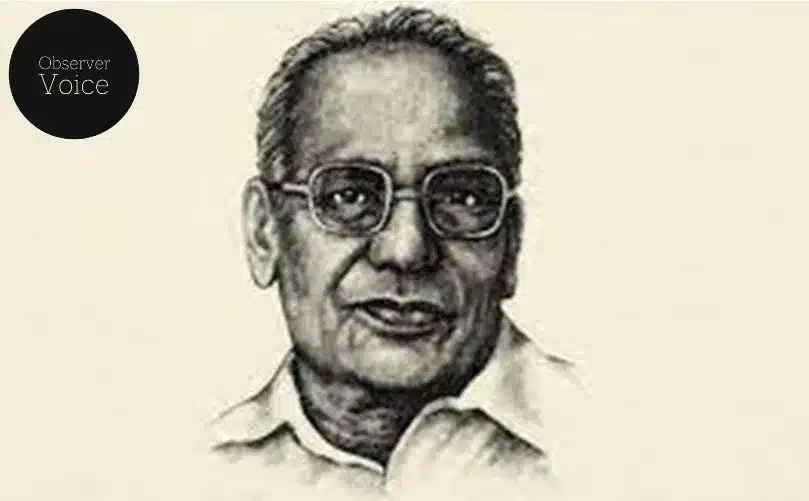Jayaprakash Narayan: Architect of India’s Democratic Movement

Jayaprakash Narayan (11 October 1902 – 8 October 1979), was a great statesman, social reformer, freedom fighter, and influential speaker of the country. He is also known as Lok Nayak.
Life and Career
He was born on 11 October 1902, in Bihar, India. While studying at Patna’s collegiate school, he developed a reading habit. He also read the Bhagavad Gita along with magazines like Saraswati, Prabha, and Pratap. He was a brilliant student and finished school in 1918. He won a District merit scholarship to Patna College.
He moved to the US in 1922 to get his higher education. During his time there, he had to do a lot of odd jobs to pay for his education, which made him aware of the struggles the working class went through. He first went to Berkeley and then transferred to The University of Iowa when Berkeley’s fees doubled.
He managed to take his favorite subject, sociology, in the U.S. and got some valuable advice from Professor Edward Ross. Karl Marx‘s works influenced him a lot during this time. He became a Marxist and read a lot of books by Indian intellectual and Communist theorist M. N. Roy. He also read the works of Lenin, Trotsky, Plekhanov, and Rosa Luxemburg. He died on 8 October 1979, in Patna, Bihar, India.
Later Years
In 1929, Jayaprakash Narayan returned to India. He was invited to join the Indian National Congress by Jawaharlal Nehru, who was impressed by his ideals. Mahatma Gandhi took the young man under his wing and became his mentor.
As the Indian independence movement grew, he became very active. He was arrested and imprisoned in 1932 for civil disobedience against British rule. His imprisonment made him more committed to nationalism because he met Ram Manohar Lohia, Minoo Masani, Achyut Patwardhan, Ashok Mehta, Yusuf Desai, and others.
When he got released, he was made General Secretary of the Congress Socialist Party, a left-wing group within the Congress Party. For opposing Indian participation in World War II on the side of Britain, he was imprisoned again by the British in 1939. Mahatma Gandhi started the Quit India Movement in 1942. During this time, Narayan planned to start an underground freedom movement with Suraj Narayan Singh, Gulab Chand Gupta, and Ramnandan Mishra. He was recaptured by the British in 1943.
In 1946, he was released. His passion for the freedom struggle had grown to the point that he tried to convince Congress to go violent. In 1947, India became independent. In 1948, he left the Congress Party with several other socialists. In 1952, he helped to start the Praja Socialist Party. As soon as he got tired of party politics, he joined Vinoba Bhave’s Bhoodan Yajna Movement. He became active in politics again in the late 1950s when his interest in politics was rekindled.
He got a lot of attention as a politician in the late 1960s. In 1974, when the nation suffered from high inflation and unemployment, the Nav Nirman Andolan movement asked Jayaprakash to lead a peaceful protest.
Major Works
Jayaprakash Narayan led the Bihar Movement started by students in 1974 to protest against the corruption in the Bihar government. Also, called the Total revolution and JP Movement it later became a satyagraha by opposing the government of Prime Minister Indira Gandhi.
He strongly opposed the immoral and undemocratic methods of the Indira Gandhi government and even demanded the resignation of Indira Gandhi.
Awards and Legacy
In 1965, he received the Ramon Magsaysay Award for public service. In 1999, He was posthumously honored with the Bharat Ratna, India’s highest civilian award.
Read More: 7 October in Indian and World History
Observer Voice is the one stop site for National, International news, Sports, Editor’s Choice, Art/culture contents, Quotes and much more. We also cover historical contents. Historical contents includes World History, Indian History, and what happened today. The website also covers Entertainment across the India and World.

